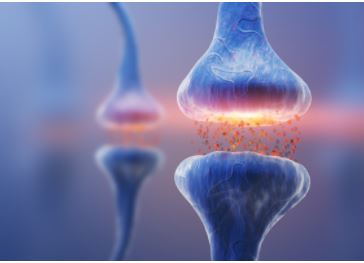
Nutrition can be a major factor in managing seasonal affective disorder. I’ll preface by saying I am not a nutritionist or an integrated medical practitioner. However, numerous studies have been done on how certain foods can help with the winter blues. Small changes to your diet this winter could help improve your overall mental health and wellness.

To better understand the role nutrition plays in mood, it’s important to talk about the brain. Neurotransmitters are chemicals found in the brain. Some of these chemicals have a direct impact on our mood. The three main chemicals impacted by food are serotonin, dopamine, and norepinephrine. We know that serotonin is released when we consume carbohydrates. Serotonin improves mood and lessens depression. Dopamine and norepinephrine are released after eating protein. These two chemicals improve alertness and increase our feelings of pleasure. Additionally, omega 3 fatty acids, folic acid, and vitamin d are very important in supporting our neurotransmitters. So, what does this mean, and what foods help with the release of these chemicals?
To use food to your advantage this winter, focus on high quality protein, fiber, and healthy fats. Lean proteins are an ideal addition to your winter recipe box. Fish such as salmon or trout contains high levels of omega 3 fatty acids as well as vitamin d. Both are important for brain health which in turn helpful in stabilizing mood. If fish isn’t your thing, other sources of lean protein (chicken or turkey) are high in amino acids which positively impact the brain. Not to mention, protein helps our bodies process carbohydrates more efficiently which provides us with sustained energy. Amazingly, while protein is helping to break down carbohydrates, it also causes the body to release dopamine and serotonin.

Folic acid helps boost serotonin levels. Folic acid is found in dark leafy greens such as kale and spinach. It is also found in oatmeal, sunflower seeds, and lentils. Eggs are a powerful food that contains both folic acid as well as protein for powerful mood enhancement.
Berries are full of antioxidants which help regulate cortisol. Unregulated cortisol can contribute to anxiety. Strawberries, blueberries, and raspberries are all powerful tools to help regulate cortisol and reduce anxiety and depression. Dark chocolate is also full of antioxidants. Our brains release serotonin when we eat chocolate. If you choose to incorporate dark chocolate into your diet, make sure it’s at least 70% dark chocolate. Anything under 70% contains high amounts of refined sugar.

Of course, foods high in vitamin d are very important during this time. Vitamin d is important for mood regulation. Since our bodies rely on the sun for vitamin d, and since daylight is so limited during the winter, we need to supplement this vitamin with certain foods. Good news for all the dairy lovers—dairy is full of vitamin D. Milk, yogurt, and cheese are great sources of vitamin d.

Finally, there are some foods that have been shown to negatively impact mental health. These include alcohol, sugar, refined carbohydrates, and coffee. There are various reasons for this. Alcohol acts as a depressant on the brain. Sugar can act as both a stimulant and a depressant. Following consumption of sugar our bodies have “sugar high” which is the stimulating effect of sugar. After a time, the brain can “crash” which is how sugar can be both a stimulant and a depressant. Refined carbohydrates (white bread, white flour, potatoes, etc) are broken down into sugar during the digestive processes. For those struggling with anxiety, a stimulant can exacerbate the anxiety. Likewise, for those with seasonal depression, foods that act as depressants can actually worsen depression.
While no diet can cure seasonal affective disorder, proper nutrition can go a long way in helping to manage it. Bottom line—add lean proteins, vegetables, berries, legumes, and dairy into your diet. Limit coffee, alcohol, and sugar this winter. Small, easy changes can make a big impact on your health this winter.
To Health, Hope, and Healing
Krista

Krista Demuth, MS LPC, CATP is a professional counselor specializing in mental health for children, adolescents, and adults. She is a Certified Child and Adolescent Trauma Professional. She is licensed in Wisconsin and provides service to the St Croix River Valley and surrounding areas.
